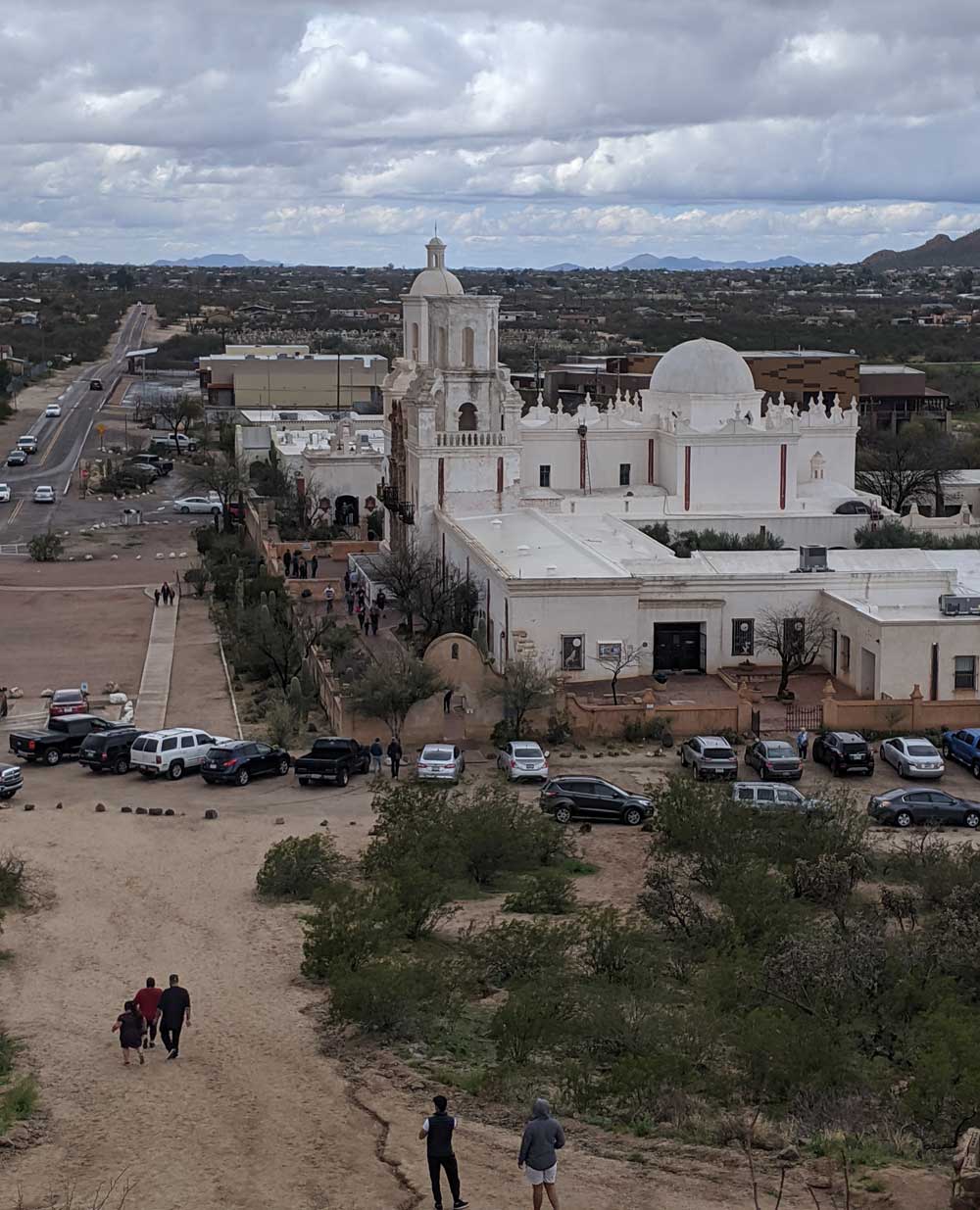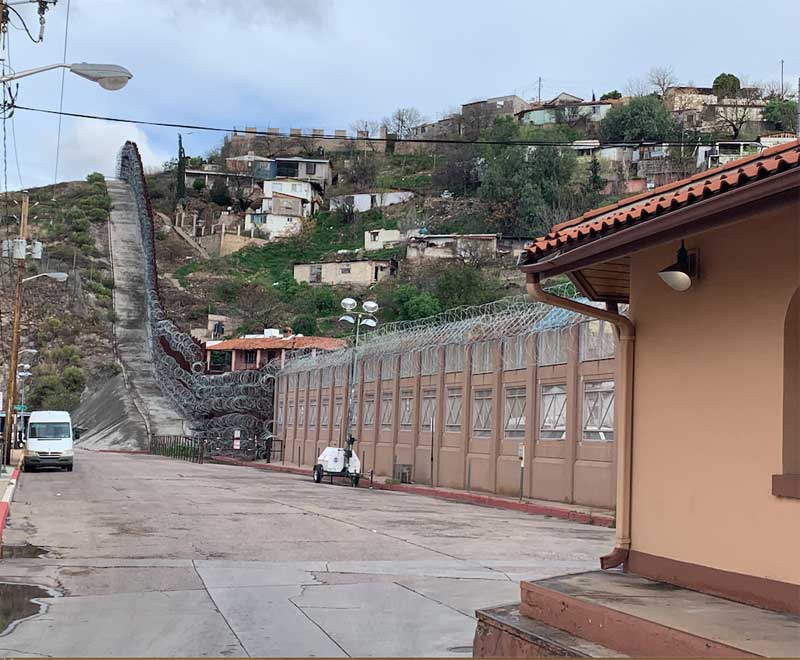On March 7, 2020, eight law students, accompanied by Professors Lynette Parker and Evangeline Abriel, spent their spring break week volunteering at the Florence Immigrant and Refugee Rights Project in Arizona. These inspiring students were S. Coleman, Chloe Czabaranek, Osvaldo Hidalgo Otamendi, Rigoberto Lua, Vasti Montiel, Ruby Palomares, Deisy Salas, and Victor Valdez Gonzalez. During the week, they worked with detained, pro se asylum seekers to complete asylum applications, researched country conditions to support the applications, researched a number of intricate legal issues, made phone calls to arrange placements for minor immigrants, met with the dedicated Florence Project attorneys and staff, and observed court proceedings. The students recorded their experiences in the following blogs.
Sunday, March 8, 2020
On Sunday, March 8, 2020, we visited Mission San Xavier del Bac, located at the village of Wa:k (San Xavier District) on the Tohono O’odham reservation. Shops with arts, crafts, cinnamon tea, and fry bread were located throughout the area. Some students attended mass, shopped, walked the hill close by even during the rainy weather.

Mission San Xavier de Bac
After the Tohono O’odham reservation visit, we drove another hour to Nogales, Arizona to the Nogales, Arizona and Nogales, Mexico Sonoran border. Driving into the town, you can see the hills of houses on the Mexico side with this large concrete wall with barbed wire all throughout.
We met with Fr. Peter Neeley, S.J., Associate Director of Education and Advocacy, of the Kino Border Initiative. He is responsible for the development and delivery of curricula that is attentive to both the Catholic social tradition and the contemporary realities of border and migration policies The KBI’s vision: “Humane, just, workable migration between the U.S. and Mexico.” The KBI’s mission:
To promote US/Mexico border and immigration policies that affirm the dignity of the human person and a spirit of bi-national solidarity through:
- Direct humanitarian assistance and accompaniment with migrants.
- Social and pastoral education with communities on both sides of the border.
- Participation in collaborative networks that engage in research.
- and advocacy to transform local, regional, and national immigration policies.
The KBI is located on both the U.S. and Mexico side of Nogales, and helps migrants who have recently been removed or those that have yet to cross. They provide aid, shelter for women and children, food hall for all, and also provide trainings and information to migrants. We did not get to cross the border per school policy, but we were able to walk right on top of the border since they had an access way on top, but were not allowed to take pictures there.
The towns of Nogales have people crossing both sides every day since people live and work on both sides. A freight train filled with Ford Focuses also runs through everyday. The barbed wire is only on the U.S. side and is an eye sore to those that live on the U.S. side. Overall, the town felt as if we were in Mexico, but had a very heavy presence of U.S. law enforcement agencies.
